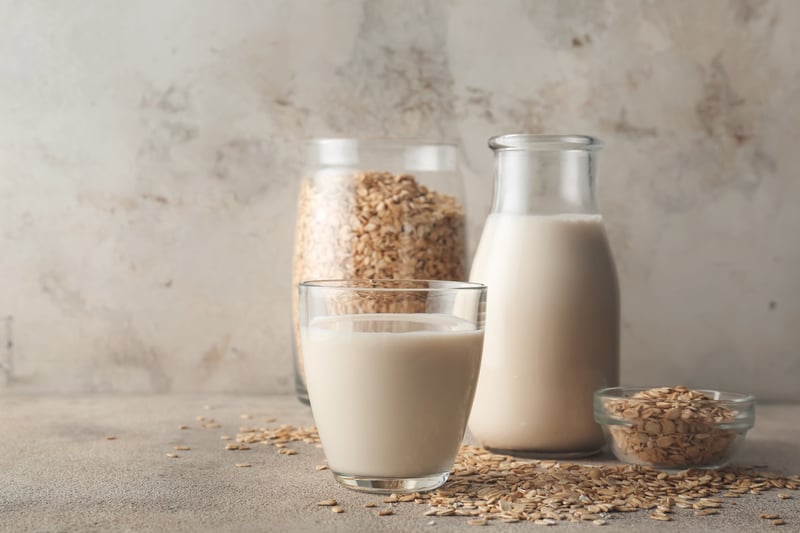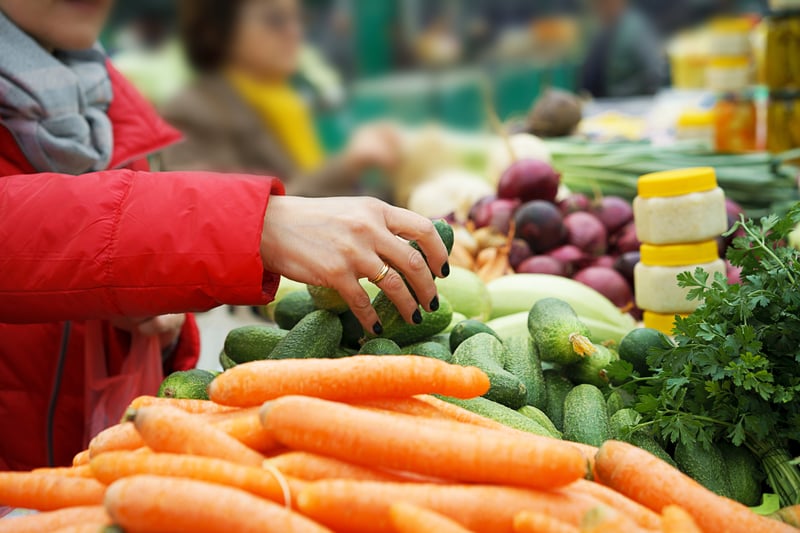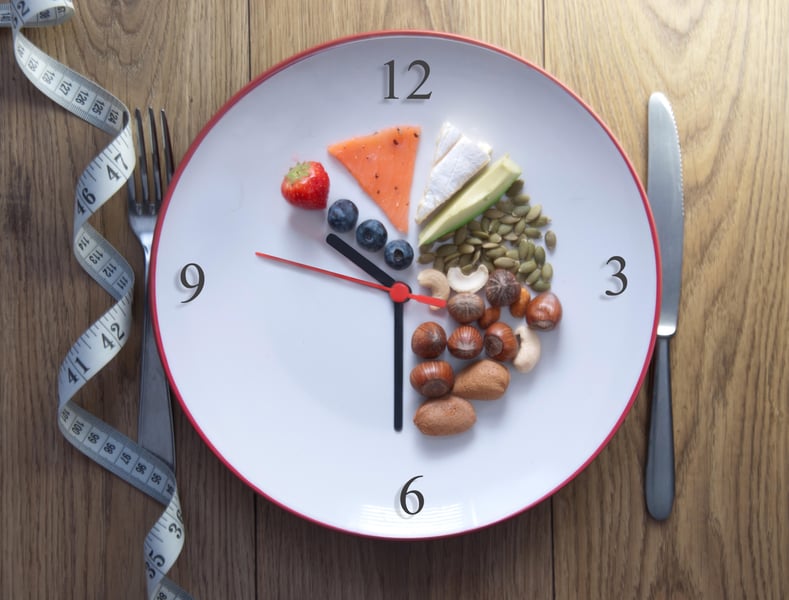Get Healthy!
445 Results for search "Food &, Nutrition: Misc.".
Health News Results - 445
The bacteria behind typhoid, a major killer of children in the developing world, could be vulnerable to something as simple as tomato juice, new research suggests.
Typhoid is caused by the Salmonella Typhi bacterium, and is usually contracted from contaminated food or beverages. Its symptoms include nausea, fever and abdominal pain. Left untreated, the disease can prove fatal.
- Ernie Mundell HealthDay Reporter
- |
- January 31, 2024
- |
- Full Page
A daily multivitamin could help people keep their brains healthy as they age, a new trial finds.
Results suggest taking multivitamins could help prevent memory loss and slow cognitive aging among older adults, researchers report in the Jan. 18 issue of the American Journal of Clinical Nutritio...
- Dennis Thompson HealthDay Reporter
- |
- January 18, 2024
- |
- Full Page
Women who consume more plant-based protein tend to age more gracefully, a new study reports.
Women with diets rich in protein -- especially from plant-based sources -- develop fewer chronic diseases and enjoy healthier aging overall, researchers report in the Jan. 17 issue of the American Journal of Clinical Nutrition.
Overall, women who ate more plant-based protein were 46...
- Dennis Thompson HealthDay Reporter
- |
- January 17, 2024
- |
- Full Page
Women who've survived breast cancer may want to up their dietary intake of soy, nuts, beans and whole grains, a new analysis finds.
A higher intake of soy compounds called isoflavones was especially tied to better odds that cancer would not return, according to researchers at Johns Hopkins University in Baltimore and elsewhere.
The findings can't yet determine the ideal dosages of i...
- Ernie Mundell HealthDay Reporter
- |
- January 12, 2024
- |
- Full Page
Tending a garden can help young kids develop healthy attitudes about food that will influence their health years later, a new study says.
Kids who participated in a gardening and food education program during elementary school were more likely to eat healthier as they grew up, researchers found.
"Kids who grow vegetables in a school garden and learn how to prepare meals seem to show...
- Dennis Thompson HealthDay Reporter
- |
- January 11, 2024
- |
- Full Page
Vegetarian diets have been tied to a variety of health benefits -- lower blood pressure, better blood sugar control and weight loss among them.
Now a new study suggests those benefits might even extend to a person's ability to ward off COVID-19.
A predominantly plant-based diet is linked to 39% lower odds of contracting COVID, according to a report in BMJ Nutrition Prevention an...
- Dennis Thompson HealthDay Reporter
- |
- January 10, 2024
- |
- Full Page
A tasty vegetarian salad could be the fresh meal that fuels a space flight to Mars, a new study contends.
Researchers came up with the salad while searching for the optimal "space meal"that would supplement prepackaged foods on long voyages between planets.
The salad contains soybeans, poppy seeds, barley, kale, peanuts, sweet potato, and sunflower seeds, according to a report in th...
- Dennis Thompson HealthDay Reporter
- |
- January 3, 2024
- |
- Full Page
You may think that artificial sweeteners can help you lose some weight, but a new study finds they are no good for your gut's microbiome.
People who use aspartame (Equal), sucralose (Splenda), saccharin (Sweet'N Low), or stevia leaf extract tended to have intestinal bacteria colonies that differed significantly from those of people who didn't use sugar substitutes, researchers found.
<...- Dennis Thompson HealthDay Reporter
- |
- January 3, 2024
- |
- Full Page
A diet laden with omega-3 fatty acids found in nuts and oily fish might help slow the progression of pulmonary fibrosis, researchers report.
Pulmonary fibrosis is a relentless, potentially fatal disease where lung tissue scars and hardens over time. Often tied to smoking, the illness impairs lung function so that patients become short of breath, weak and disabled.
The new study was ...
- Ernie Mundell HealthDay Reporter
- |
- January 3, 2024
- |
- Full Page
Still weighing whether to make a New Year's resolution? Or perhaps regretting letting your healthy habits slide during the holidays?
Either way, the American Medical Association (AMA) has ten recommendations to help Americans improve their health in 2024.
"It is quite common after the holidays to think about all you've eaten or your reduced physical activity and get discouraged,"sai...
- Dennis Thompson HealthDay Reporter
- |
- January 1, 2024
- |
- Full Page
Folks who habitually add an extra sprinkle of salt to their meals are doing no favors for their kidneys, new research confirms.
The finding held even after researchers accounted for other health issues, such as being overweight, not exercising or smoking and/or drinking.
The bottom line: "Adding salt to foods is associated with increased risk of chronic kidney disease in the general...
- Ernie Mundell HealthDay Reporter
- |
- December 29, 2023
- |
- Full Page
New research offers yet more evidence that veggies, whole grains and low-fat dairy products are good for you in the long run.
"Our study goes beyond the simple question of, 'To carb or not to carb?'" said lead study author Binkai Liu, a research assistant in the nutrition department at Harvard T.H. Chan School of Public Healt...
- Carole Tanzer Miller HealthDay Reporter
- |
- December 28, 2023
- |
- Full Page
It may not take as strict a diet as thought to keep type 1 diabetes under control: New Swedish research shows that a moderate low-carb diet still helped people with type 1 diabetes stick to blood-sugar targets.
"The study shows that a moderate low-carbohydrate diet lowers the average blood sugar level and that more patients can keep their blood sugar within the target range, which is cons...
- DELETED Carol Miller Account HealthDay Reporter
- |
- December 27, 2023
- |
- Full Page
Christmas dinners aren't usually known for healthy offerings, and instead bring to mind thoughts of Uncle Fred loosening his belt after a third round of helpings.
But there are traditional offerings that can be healthy, if prepared in the proper way, researchers at Newcastle University in the United Kingdom report.
For example, Brussels sprouts contain glucosinolates, which can aid ...
- Dennis Thompson HealthDay Reporter
- |
- December 25, 2023
- |
- Full Page
Chances are you know at least one person who's given up eating gluten. Maybe you've even given it up yourself. But who can really benefit from a gluten-free diet?
"Gluten is one of the main proteins found in wheat, barley and rye," said Dr. Joseph Levy, a pediatric gastroenterologist at Hassenfeld Children's Hospital at NYU Langone, in New York City. "It's actually a group of proteins and...
- HealthDay Editors HealthDay Reporter
- |
- December 21, 2023
- |
- Full Page
Women struggling with fertility and using in vitro fertilization (IVF) to conceive sometimes turn to supplements for help.
Unfortunately, a new study finds only weak evidence to support that strategy.
In contrast, the same research found that the heart-healthy Mediterranean diet does boost the odds that a woman will become a mother.
Compared to the fat- and sugar-rich Western ...
- Ernie Mundell HealthDay Reporter
- |
- December 20, 2023
- |
- Full Page
The average U.S. adult eats a meal's worth of snacks every day, a new study suggests.
Americans average about 400 to 500 calories in snacks daily, often more than what they ate at breakfast, according to data from more than 23,000 people.
These extra calories offer little in the way of actual nutrition, said senior researcher
Folks with a family history of heart disease might benefit from eating more oily fish like salmon, mackerel, herring and sardines, a new study finds.
Oily fish contain high levels of omega-3 fatty acids, which cannot be produced by the body and must be obtained from the diet.
People's risk of heart disease increased by more than 40% if they had low levels of omega-3 fatty acids plus...
- Dennis Thompson HealthDay Reporter
- |
- December 6, 2023
- |
- Full Page
A new study of identical twins has provided fresh evidence that a vegan diet can vastly improve a person's heart health.
Twins assigned a vegan diet for two months had significant improvements in cholesterol, insulin and body weight compared to their siblings, who ate a healthy diet that included animal protein.
"Based on these results and thinking about longevity, most of us would ...
- Dennis Thompson HealthDay Reporter
- |
- December 1, 2023
- |
- Full Page
THURSDAY, Nov. 23, 2023 (Healthday News) -- Thanksgiving marks the start of the holiday eating season, when everyone is constantly tempted by sweet treats, rich foods and fancy, high-calorie drinks.
But before diving into decadent eating, consider trying to make healthy food choices during the festivities, one expert suggests.
"The holidays are a time for celebration and social gath...
- Robin Foster HealthDay Reporter
- |
- November 23, 2023
- |
- Full Page
It's common to find yourself stuffed at some point during Thanksgiving Day festivities, but experts say staying active can help you burn some calories and feel a little less sluggish after the big meal.
Kicking off Thanksgiving Day by participating in a community event like a Turkey Trot can help prepare you for the feast to come,
Cutting out just one teaspoon of salt every day lowers blood pressure almost as much as medication does, new research shows.
Investigators said theirs is one of the largest studies ever to include people taking high blood pressure meds in a look at the effect of reducing dietary intake of sodium.
"We found that 70-75% of all people, regardless of whether they are already on blood pr...
- Carole Tanzer Miller HealthDay Reporter
- |
- November 13, 2023
- |
- Full Page
The Thanksgiving table is typically loaded down with turkey, stuffing, gravy, mashed potatoes and all kinds of pie, but nutritionists say kids should also be encouraged to eat fresh fruit and vegetables during the holiday meal.
Precious few children eat enough fruits and vegetables the rest of the year, so the Academy of Nutrition and Dietetics encourages families to prepare Thanksgiving ...
- Robin Foster HealthDay Reporter
- |
- November 11, 2023
- |
- Full Page
About one in eight military families are turning to food banks and community pantries to make ends meet and feed their children, a new study finds.
More than 13% of military families with at least one child said they used a food bank at least once in the past 12 months, according to a 2021 survey of more than 8,300 families with an active service member in the U.S. Army or Air Force.
<...- Dennis Thompson HealthDay Reporter
- |
- November 10, 2023
- |
- Full Page
Adding warning labels to meat about its impact on climate and health could lower its consumption, a new study suggests.
British researchers investigated what adding cigarette-style graphic warning labels to meat in a cafeteria setting might do.
"Reaching net zero is a priority for the nation and the planet. As warning labels have already been shown to reduce smoking as well as drink...
- Cara Murez HealthDay Reporter
- |
- November 1, 2023
- |
- Full Page
Fighting climate change could come down to choosing chicken for your burrito or using soy milk for coffee creamer, a new study suggests.
Making simple substitutions to an everyday diet can reduce the average American's food-based carbon footprint by more than 35%, according to an article published online Oct. 26 in the journal
Mid-life isn't too late to make a dietary change to preserve brain health.
Women who started following the diet known as DASH (Dietary Approaches to Stop Hypertension) to lower their blood pressure were about 17% less likely to report memory loss and other signs of mental decline decades later, a new study re...
- Cara Murez HealthDay Reporter
- |
- October 24, 2023
- |
- Full Page
Rich in colorful fruits and vegetables, healthy fats and lean proteins, a Mediterranean style of eating consistently earns accolades for its long list of health benefits, including the prevention of heart disease and diabetes.
Now, new research from Spain shows this way of eating, when combined with regular exercise and fewer calories, can slash dangerous belly fat in older folks while he...
- Denise Mann HealthDay Reporter
- |
- October 24, 2023
- |
- Full Page
Nutrition is important for your whole body, including those two small organs through which you look at the world.
The same diet that's good for your heart and the rest of your body will also help your eyes, according to the American Academy of Ophthalmology (AAO).
The academy offers advice on vision-healthy foods and how to create a diet rich in them.
"Some nutrients keep the ...
- Cara Murez HealthDay Reporter
- |
- October 20, 2023
- |
- Full Page
Think twice about ordering that double cheeseburger, salami on rye or juicy T-bone.
Just two servings of red meat a week -- processed or unprocessed -- can increase your risk of type 2 diabetes by 62%, according to a new study.
"A modest but statistically signifi...
- Steven Reinberg HealthDay Reporter
- |
- October 19, 2023
- |
- Full Page
You have a lot of choices when buying milk, from the traditional cow variety to some made from plants. But how do these options compare in terms of nutrition?
An expert from Baylor College of Medicine in Houston breaks down the differences.
"If you're looking for a high-protein product, cow's milk and soy milk are the best options. If you want something lower calorie that does...
- Cara Murez HealthDay Reporter
- |
- October 10, 2023
- |
- Full Page
Should Fluffy and Fido go vegan?
A new study says yes -- for the environment.
The United Nations Food and Agriculture Organization estimates that livestock are responsible for 14.5% of the greenhouse gas emissions. In response, some experts say eating ve...
- Sarah D. Collins HealthDay Reporter
- |
- October 5, 2023
- |
- Full Page
Going vegetarian is trendy and popular, along with being a healthy choice, but a large portion of those who say they want to stick with a plant-based diet don't.
It might come down to your DNA, suggests new research that has uncovered three genes that seem to be strongly linked to vegetarianism.
"It seems there are more people who would like to be vegetarian than actually are, and ...
- Cara Murez HealthDay Reporter
- |
- October 4, 2023
- |
- Full Page
What a baby eats, or how the baby eats, may have an impact on future weight and health, research has shown.
A new study backs that up. It found that 9-year-olds who had been breast-fed for six months or more had a lower percentage of body fat than their peers who were ne...
- Cara Murez HealthDay Reporter
- |
- October 2, 2023
- |
- Full Page
A diet rich in whole grains, fruits and non-starchy vegetables is the best recipe for middle-aged folks trying to keep their weight under control, new research finds.
Low in added sugar, yet rich in vitamins and minerals, such foods are considered "high-quality"carbs, investigators explained.
The same cannot be said of refined grains, sugary beverages or starchy vegetables. Such fo...
- Alan Mozes HealthDay Reporter
- |
- October 2, 2023
- |
- Full Page
For most people, there's no reason to give up gluten for good.
But that's not so easy for folks with two gluten-related medical conditions: celiac disease and gluten intolerance, according to Dr. Sarmed Sami, a gastroenterologist at Mayo Clinic Healthcare in London.
- Cara Murez HealthDay Reporter
- |
- October 2, 2023
- |
- Full Page
Kraft Heinz said it is recalling over 83,000 packs of its Kraft Singles American processed cheese slices because of a packaging defect in the plastic that wraps the cheese slices.
A temporary issue developed on one of the wrapping machines, making it possible for a thin strip of individual film to stay on the cheese slice after the wrapper is removed. Having this film on the cheese could ...
- Cara Murez HealthDay Reporter
- |
- September 22, 2023
- |
- Full Page
Highly processed packaged foods and drinks may be quick, cheap and tasty, but new research suggests they're also likely to up your risk for depression.
Among big consumers of ultra-processed foods, depression risk may rise by as much as 50%, the new study found, particularly when those foods are artificially sweetened.
"Given what we know about these foods and the important role of ...
- Alan Mozes HealthDay Reporter
- |
- September 20, 2023
- |
- Full Page
Low-carb diets may be all the rage, but they're not for kids with diabetes, according to the American Academy of Pediatrics (AAP).
In a new report, the AAP says that low-carbohydrate diets cannot be recommended for children or teenagers with either type 1 or type 2 diabetes. That's because there's little evidence they're helpful, but there are concerns about restricting kids' diets to tha...
- Amy Norton HealthDay Reporter
- |
- September 18, 2023
- |
- Full Page
Going vegan doesn't have to mean going broke, with new research finding that steering clear of meat and dairy can lower food costs by about 16%.
"A vegan diet based on fruits, vegetables, grains and beans has always been a more affordable diet than one that includes meat, dairy and other animal products,"said study author
- Alan Mozes HealthDay Reporter
- |
- September 6, 2023
- |
- Full Page
Groceries cost a lot, but it is possible to eat healthy foods without overspending.
Experts at the University of Alabama at Birmingham offer tips for healthy eating on a budget.
"Maintaining a healthy diet is not only about what you eat but also about making mindful choices,"said
- Cara Murez HealthDay Reporter
- |
- September 4, 2023
- |
- Full Page
An apple a day may be just what the doctor ordered.
New research on "produce prescription"programs finds that when access to free fruits and vegetables is offered, recipients see measurable benefits in health and hunger.
"To me, this shows that there's a very strong proof of concept behind produce prescriptions and this should, I think, add to the growing momentum to continue to exp...
- Cara Murez HealthDay Reporter
- |
- August 29, 2023
- |
- Full Page
Stroll past the supplements in any drugstore and you'll find broad claims about fish oil helping everything from heart and brain health, to joints, eyes and immune systems. But you just might be wasting your money, according to a new study.
"We know from recent large, randomized trials that fish oil supplements do not prevent heart disease in the general population, but yet they are one o...
- Cara Murez HealthDay Reporter
- |
- August 24, 2023
- |
- Full Page
When it comes to the array of different microorganisms found in the human gut, more is better: A more diverse microbiome is a healthier microbiome.
Now, initial results of a small, ongoing study suggests that weight loss through either intermittent fasting or a calorie-restricted diet can improve that diversity.
After tracking calorie-control dieters and intermittent fasters for thr...
- Alan Mozes HealthDay Reporter
- |
- August 22, 2023
- |
- Full Page
The federal government recently stopped pandemic-related emergency food aid, leaving perhaps 2 million more Americans without enough to eat.
Emergency allotments in the Supplemental Nutrition Assistance Program (SNAP), also known as food stamps, ended in March in all states that hadn't already cut them.
After this temporary increase in SNAP benefits ended, recipients experienced a 2...
- Cara Murez HealthDay Reporter
- |
- August 14, 2023
- |
- Full Page
There are plenty of reasons to steer clear of sugary drinks, and new research highlights yet another one: Women who drink sodas and other sweetened drinks have a higher risk of developing liver cancer and chronic liver disease.
Looking at data on nearly 100,000 women, researchers found that nearly 7% of women consumed one or more sugar-sweetened beverages daily. Those women had an 85% hi...
- Cara Murez HealthDay Reporter
- |
- August 9, 2023
- |
- Full Page
In the midst of a childhood obesity epidemic, a new study is pointing to a way to help school kids maintain a healthier weight: clean, accessible drinking water.
The decidedly low-tech solution emerged in a study of 18 California elementary schools that serve largely low-income minority families. Researchers found that when they kicked off a "Water First" program -- which included putting...
- Amy Norton HealthDay Reporter
- |
- August 7, 2023
- |
- Full Page
Kombucha is a fermented tea that many folks believe offers numerous health benefits -- and new research suggests they may be right.
Though the study was small -- 12 participants -- it found that kombucha may help lower blood sugar levels in people with type 2 diabetes. Fermented with bacteria and yeasts, the drink has been consumed in China since 200 B.C. but it has been embraced in the U...
- Sarah D. Collins HealthDay Reporter
- |
- August 1, 2023
- |
- Full Page
Children who have a chronic immune system disease that can prevent them from eating may eventually have a new treatment, decades after the condition was first identified.
"Parents and doctors may not be aware of this, but this is a very prominent and serious disease in the pediatric population, and it is increasing in number because it is directly related to food allergens, which are also...
- Cara Murez HealthDay Reporter
- |
- August 1, 2023
- |
- Full Page
A micronutrient in human breast milk may provide significant benefit to developing newborn brains, according to new research that sheds light on the link between nutrition and brain health.
Scientists looked at this sugar molecule in rodents and in human neurons. They said the micronutrient, called myo-inositol, may lead to improved infant formulas.
"The current research does indica...
- Cara Murez HealthDay Reporter
- |
- August 1, 2023
- |
- Full Page

















































